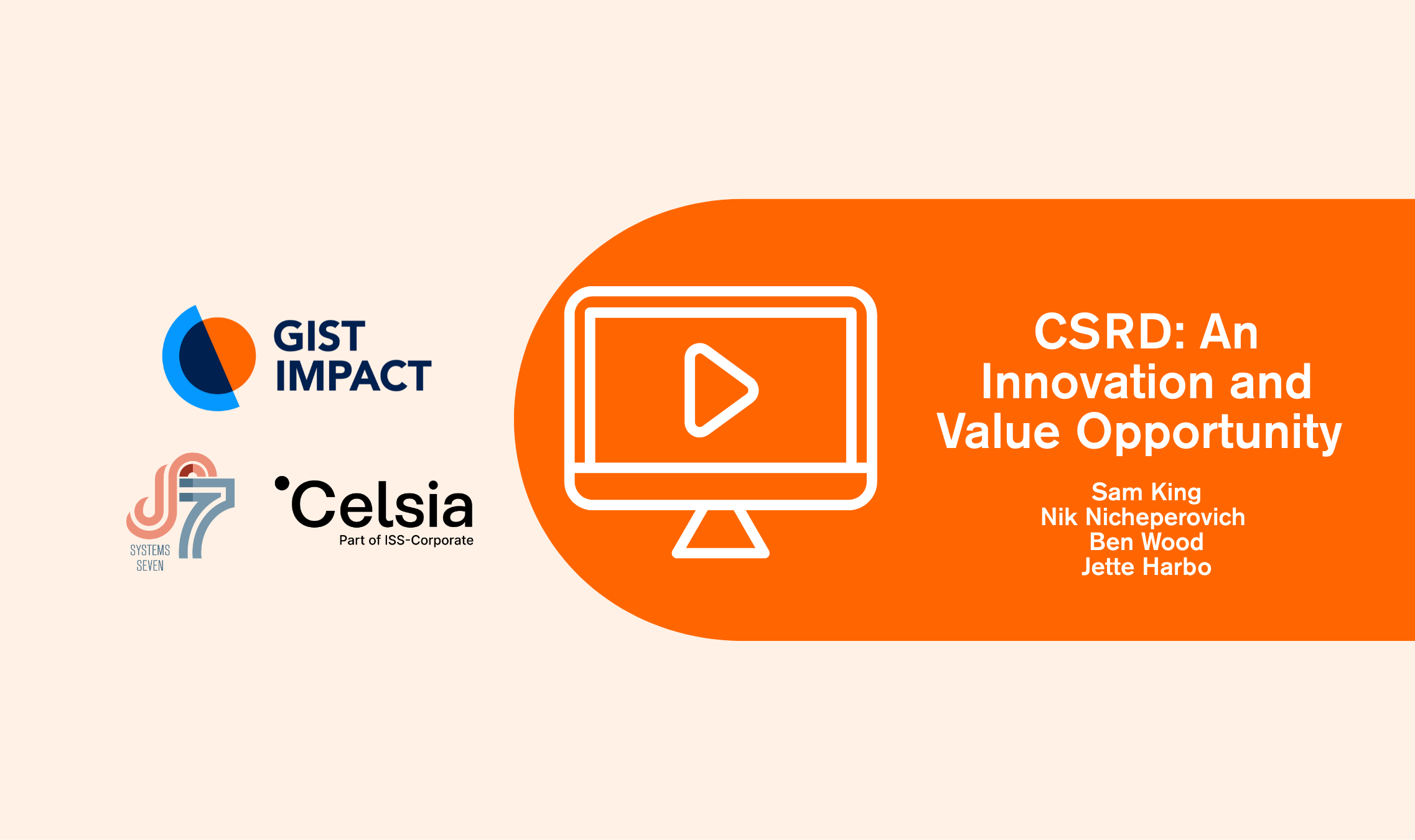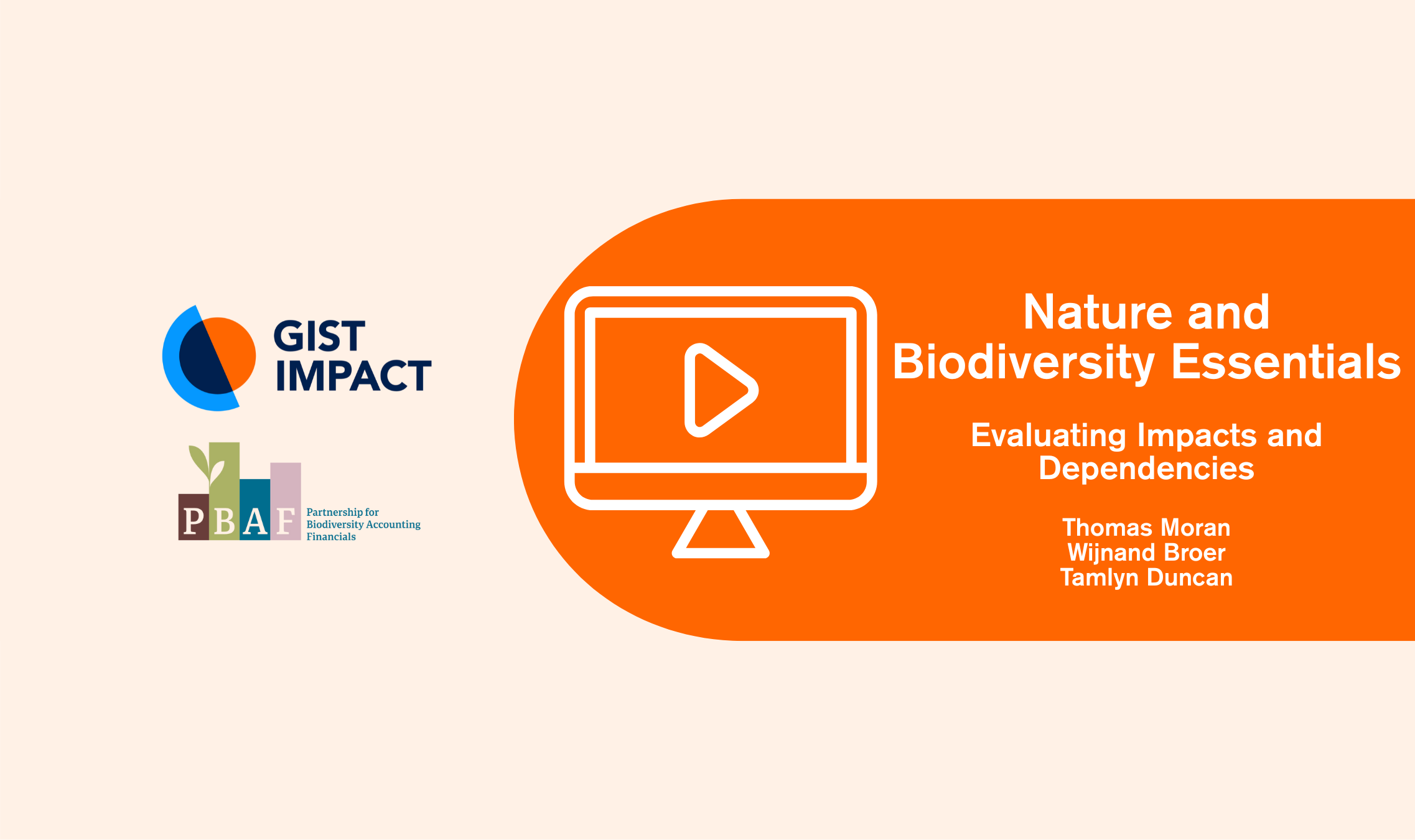In our latest webinar, Sam King (SVP Corporate, GIST Impact), Ben Wood (Principal, Systems 7) and Jette Harbo (Regulatory Product Development Manager, Celsia) discussed the topic of “CSRD: An Innovation and Value Opportunity”.
The wide-ranging discussion showcased the end-to-end solution available for financial institutions and corporates, and delivered some industry-leading insights – including:
The Double Materiality Assessment
- While measuring impact materiality is an important next step in sustainability reporting, impact valuation is what allows you to measure the impact in a science-backed way (for example, taking into account the relative cost of extracting water from a water-poor region vs a water-rich region).
- Impact valuation enables more effective stakeholder conversations by providing a quantitative case for the identification of material issues.
- Transparent impact valuation streamlines the complexities of the auditing process by enabling companies to justify their choice of materiality topics with underlying impact and sustainability data.
CSRD and Value Creation
- The double materiality assessment is a critical foundation for all sustainability efforts – allowing entities not only to identify value-at-risk but also value-to-gain, as much within company operations as in its value chain and beyond.
- The double materiality assessment allows companies to focus their resources to drive resources to where it matters most – increasing efficiencies and driving powerful narratives for employees, investors and customers.
- The CSRD presents opportunities to use a data-driven approach alongside new metrics to operationalise the sustainability process – by setting targets and actions, and track them year-on-year.
Shifts in Reporting Requirements
- There is an increasing requirement for transparency in sustainability reporting, alongside mandatory audits and higher demands for data accuracy.
- Aligning with the CSRD requires a comprehensive data management system to identify gaps and streamline collection and consolidation.
- There is an emerging need for data collection and aggregation down at the product level, which ultimately increases the accuracy of the impact materiality assessment.






